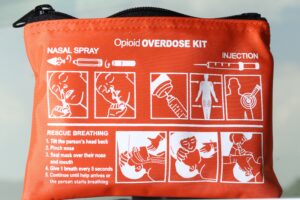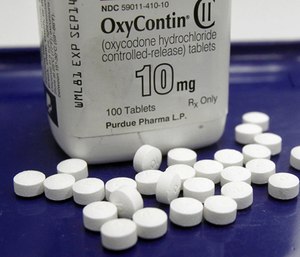OxyContin maker, Purdue Pharma, is staring at one of the biggest legal claims in the United States history. In an opioid lawsuit filed by an undisclosed party, the company could be forced to pay up to $40 trillion in damages for its role in fueling the opioid crisis in the country. The amount is almost double the U.S GDP in 2020!
The $40 trillion amount specified in court documents excludes an even larger and improbable legal claim of about $100 trillion in a separate lawsuit filed by another party.
However, the $40 trillion claim includes a more than $2 trillion claim by a group of states, counties, and cities that want the drugmaker to pay the amount to help them cope with the opioid epidemic that they blame in part on Purdue Pharma. The vast majority of claims outlined in these lawsuits relate to unresolved opioid litigation.
Complex Matter
The staggering amounts of money that plaintiffs claim in these cases highlight the complexity of opioid lawsuits driven by bankruptcies such as Purdue Pharma’s. Tens of thousands of parties are seeking money from the drug manufacturer for allegedly fueling the opioid crisis in the United States.
Most of them believe that the company failed to warn the public about the addictive nature of its prescription opioid painkiller, OxyContin.
With time, reported cases of opioid addiction, overdose, and misuse started to rise steadily, hitting the peak in 2017 when more than 47,000 Americans died due to prescription opioid painkillers overdose.
This has left the entire country struggling with an opioid epidemic fueled by the same people tasked with protecting citizens from medical harm.

States, counties, cities, local governments, and Native American tribes have sued opioid painkiller manufacturers such as Purdue Pharma to recover damages relating to economic losses suffered from the crisis.
However, plaintiffs in opioid lawsuits involving Purdue Pharma and the Sacklers have a difficult time because the company has already filed for Chapter 11 bankruptcy. In most cases, the total amounts tend to shrink in large bankruptcies since all duplicates are removed, and the company can still challenge individual sums.
The drugmaker can also ask the bankruptcy judge to estimate its total liabilities, even though the process is fairly uncertain and uncommon.
Purdue Pharma’s Proposal
The drugmaker’s proposed settlement plan is potentially worth $10 billion, including more than $4.28 billion cash payment from the Sackler family.
Experts warn that the company’s bankruptcy case may have a significant impact on the outcome of opioid lawsuits filed against it. Some say that it isn’t uncommon for creditors to receive only a small fraction of their claims in a bankruptcy case.
To put the case into perspective, you have to look at similar cases where the complainant filed for bankruptcy.
For instance, the $40 trillion that the plaintiff in the lawsuit is claiming is approximately 3,000 times the settlement amount in the PG&E Corp bankruptcy case where the company’s equipment was blamed for causing wildfires that killed more than 100 people and destroyed approximately 19,000 homes, business buildings, and other structures including the entire town of Paradise.

“In light of the amount of money being claimed, the only fair, equitable and realistic outcome is to look at our proposed settlement plan because it maximizes the available funds and allows for a fair allocation among the various plaintiffs,” the company said in an official statement.
The bankruptcy case, which has been filed in a U.S Bankruptcy Court for the Southern District in White Plains, New York, will be heard and determined in the coming months.
Are You an Opioid Victim? Have You Filed a Lawsuit?
Have you or your loved one been affected by the opioid crisis in the country? Have you lost your loved one as a result of prescription opioid overdose or addiction? You may qualify for compensation.
Contact an experienced opioid lawsuit attorney today who will review your case and advise you on the next steps to take. Don’t sit back and suffer in silence! Let us hold those responsible for the crisis accountable!



